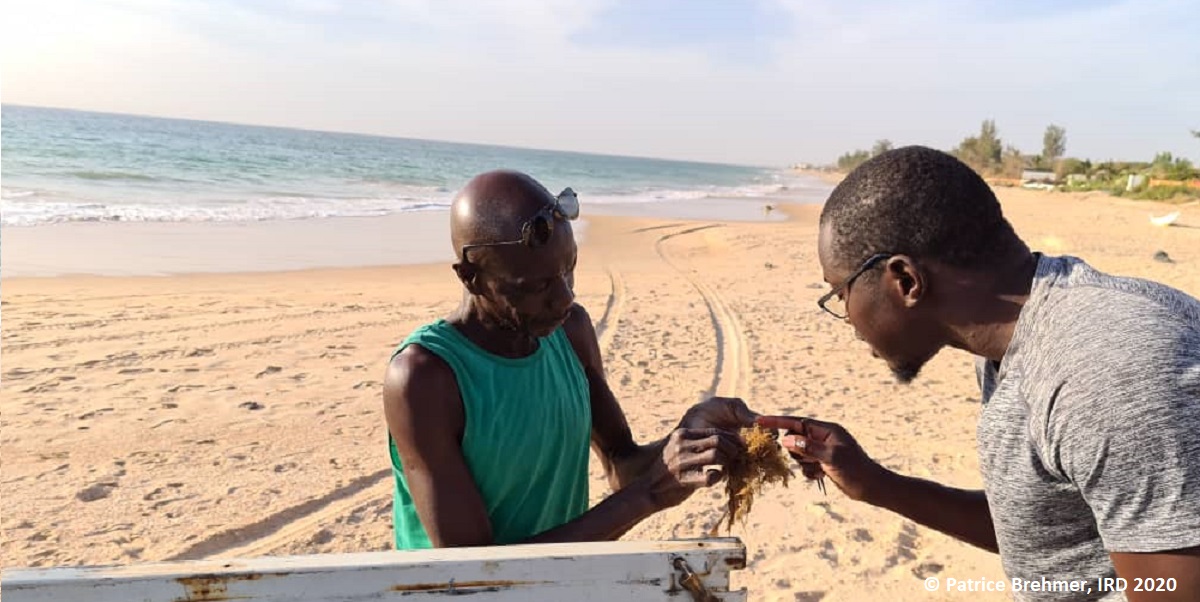
Towards sustainable cultivation and harvesting of seaweed in Senegal
The project “Seaweed for climate change resilient blue economies, biodiversity and ecosystem services” (CLIMALG-SN), which runs from May 2020 to April 2022, has already achieved remarkable progress in terms of stakeholder engagement, fieldwork and communication. To enhance biodiversity and ecosystem services in Senegal CLIMALG encourages the cultivation and harvest of seaweed while preserving natural seaweed habitats.
CLIMALG hosted an online kick-off meeting in January this year with around 50 Senegalese and international stakeholders to present their project to researchers, representatives of ministries and public institutions. The workshop addressed the topic of DNA barcoding of seaweeds for more accurate identification of environmental DNA in coastal waters. In March CLIMALG was introduced as part of a webinar series featuring each of the 12 MeerWissen projects. The webinar provided an overview of the current state of Senegalese seaweed research and pointed out threads and solutions for a sustainable seaweed cultivation and conservation in West Africa.
First exploratory field missions on the Senegalese coasts were conducted in November 2020 and February 2021. Furthermore, field missions in May and June addressed the diversity of seaweed and its influence on biodiversity in Senegal. Two female PhD students are analyzing the field material for biodiversity and the valorization of the seaweed. The results of the fieldwork will be incorporated into a database containing information about all seaweed, which has been mentioned for Senegal in the literature and online resources.
Although the COVID-19 pandemic still poses severe constraints to the German and Senegalese partners and especially affects their communication the project has now launched their website as well as their Facebook, Twitter and Instagram accounts.
As a next step, socioeconomic surveys will be conducted to assess stakeholders’ information, needs and requirements. Therefore, local stakeholders have been contacted and new Senegalese and German partners are entering the project enhancing the cooperation and mutual benefit.